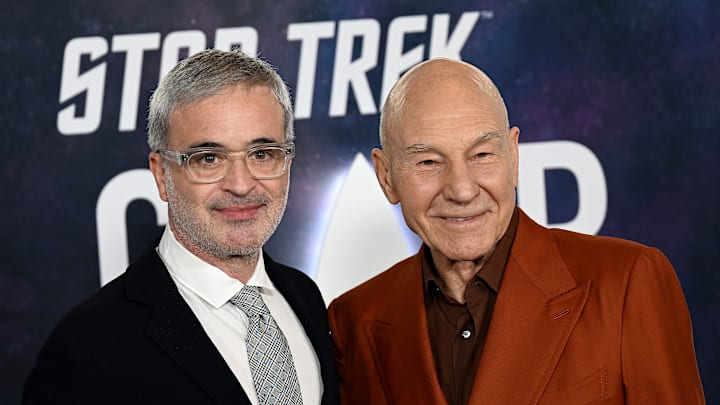Star Trek has been a force on streaming, for whatever that means, since Star Trek: Discovery launched. It's one of Paramount's biggest cash cows, but the problem is that a cash cow on streaming looks wildly different than a cash cow on television. At least in the 1990s, that is. Shows like The Next Generation and Voyager made everyone a lot of money back then because of the fact that so many eyes were on so few limited channels.
Think about this, at the height of cable in the 1990s, there were what, 100, maybe 200 or so channels? Most of them were so genre-specific that, and re-run heavy, that there were maybe 50 or show channels out there providing year-around, new content to watch. That may seem like a lot of channels, but remember that there are an estimated 51 million different channels on YouTube alone.
Tack on the dozens of streaming platforms and dozens of streaming platform alternatives like Twitch and Rumble and it's a wonder that any two people have seen the same new thing at any point in time. There are so many different outlets and opportunities for viewing anymore that it's nearly impossible to keep up with everything.
This has diluted the viewership numbers and it's why some shows are lucky to have a few hundred thousand viewers per episode. There's too much competition. And streaming services know that and may start to fall by the wayside altogether.
As Caleb Denison from Digital Trends points out in his latest video about the streaming bubble bursting, what we're going to see are viewer streaming series, and fewer shows, being produced over the coming years. Now that so many streaming companies have to pay back their loans, there's no longer the same amount of money to spend. This is going to cause multiple streaming giants to collapse and merge with others.
Thus strengthening the remaining services, while reducing the number of options and instead giving more of a concentrated look at fewer entities. This means for franchises with Star Trek, that there will be more of a concerted viewership on the remaining properties, thus more eyes on select shows.
As Denison pointed out, the "water cooler" shows are gone. There was a time when everyone and I mean everyone was talking about Friends, or Boy Meets World, but now unless something is a massive success, like Wednesday, the odds that a lot of people know about a show aren't very likely.
Think about it, a YouTuber by the name of MatPat just ended his 11-year run today, yet how many of you have heard of the Theorist, let alone viewed his work? Rooster Teeth is being stripped and sold by Warner Discovery, yet how many of you still watched their properties, let alone knew what they were? So many famous and impactful properties are no longer known by the zeitgeist. There's too much out there. It's suffocating and it's not worth diving into oftentimes, which is why so many people stick to shows and films they've already watched.
Less risk of disappointment. It's also far easier to pick from a show or film series you like, as opposed to trying something new among the masses of endless content being pumped out. The downfall of streaming will allow franchises that can whether it, like Star Trek, a chance to capture more eyes. Which is a great thing.
At not a great thing, you may end up having to pay higher prices for a single streaming service than you ever would have for cable. What was once the avenue to less expensive viewing habits has now turned into the entity that may make entertainment a premium and one that most people aren't willing to spend money on.
